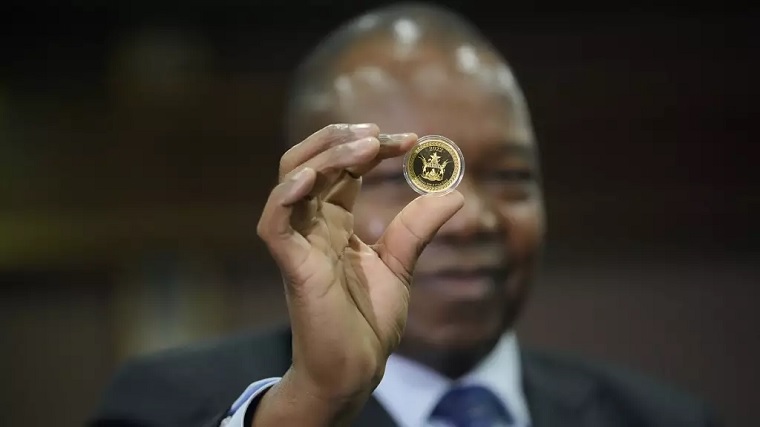 Zimbabwe is planning to release US$30 million worth of gold coins and has already sold 10 000 coins valued at about US$15 million, President Emmerson Mnangagwa said.
Zimbabwe is planning to release US$30 million worth of gold coins and has already sold 10 000 coins valued at about US$15 million, President Emmerson Mnangagwa said.
Writing in his weekly column in the Sunday Mail, Mnangagwa said that Zimbaweans had shown an appetite for gold coins as well as to save.
The central bank will therefore be releasing smaller denomination gold coins in mid-November to allow more Zimbabweans to participate.
“As I write, the Reserve Bank of Zimbabwe, RBZ, has sold over 10 000 gold coins, for about US$15 million,” Mnangagwa said.
“This means Zimbabweans have an appetite for gold coins, and to save. Our target is releasing US$30 million-worth of coins.
“By mid-November this year, the RBZ should be in a position to unveil smaller denominations of gold coins, whose value will range from a tenth, a quarter, to half of an ounce.
“This allows more Zimbabweans to participate, including those in lower-income bands. That way, we buoy our currency, while stimulating national savings.”
Gold coins were introduced in June.
In another article, the Sunday Mail, said measures introduced by the government to curb inflation and shore up the local currency were now paying off.
“Wholesalers and retailers have been outdoing each other in slashing prices of basic commodities. This is in conformity to real market fundamentals, which have seen the convergence of the parallel exchange rate and the Reserve Bank of Zimbabwe (RBZ)’s willing-buyer willing-seller rate,” the paper said.
“The majority of wholesalers and retailers are putting their products on promotion in the unremitting drive to slash prices.”
The paper quoted a member of the central bank’s Monetary Policy Committee, Persistence Gwanyanya, as saying: “The era of easy money — often gotten through extortionate pricing on Government contracts and tenders — has come to an end as Treasury religiously implements value for money processes.
“Businesses that resist this wave will be penalised, not only by the authorities but by the market itself. As such, businesses have to be more competitive, more productive and more efficient. Businesses are reducing prices and embarking on aggressive promotions to defend demand for their products and services.”
Gwanyanya said that tightening money supply will continue until the “job is done and that is when month-on-month inflation is reduced to less than 5 percent”.
(135 VIEWS)

